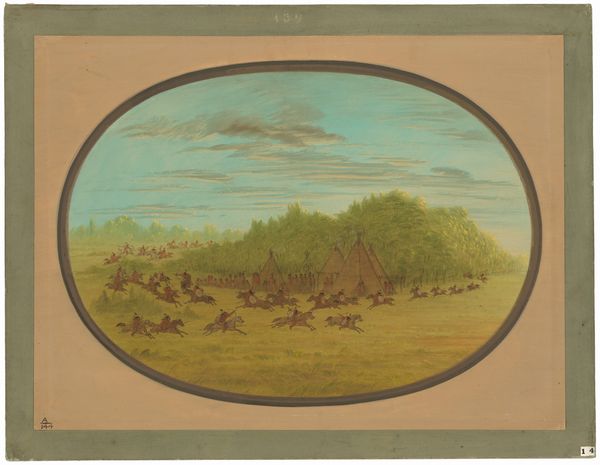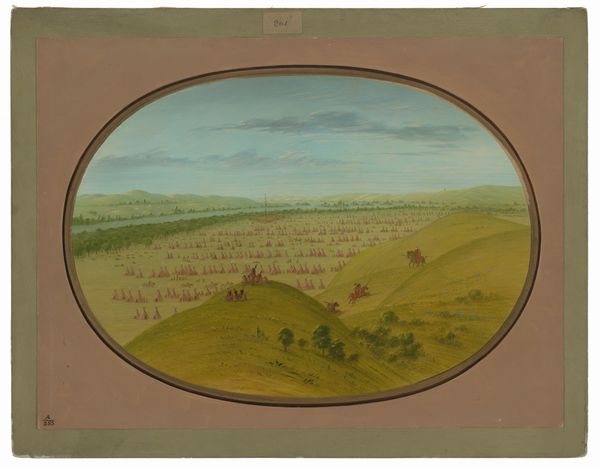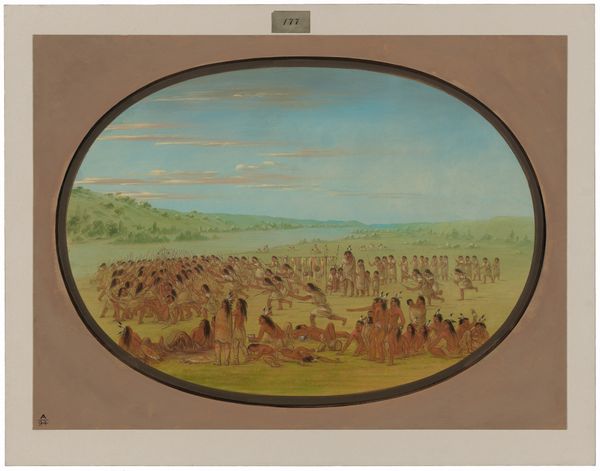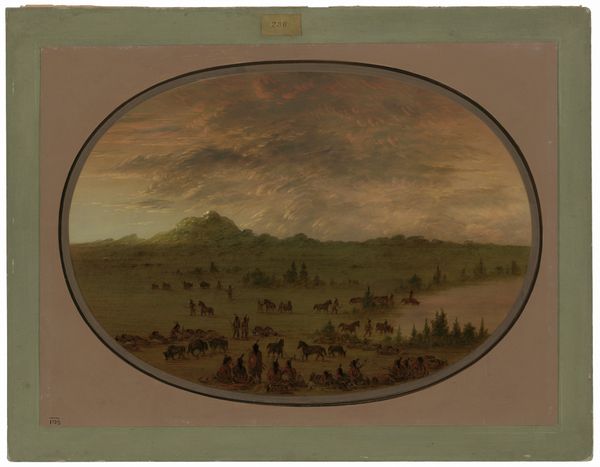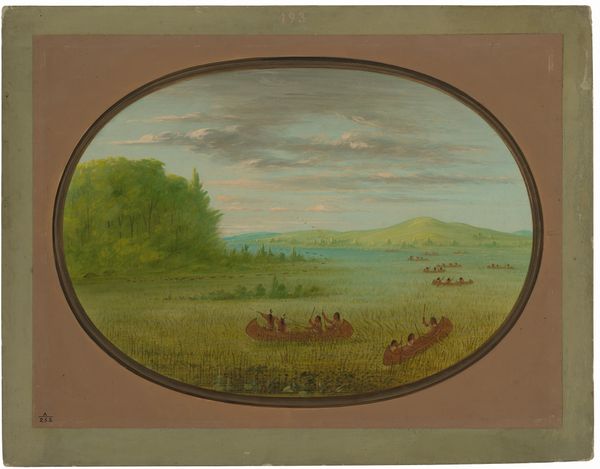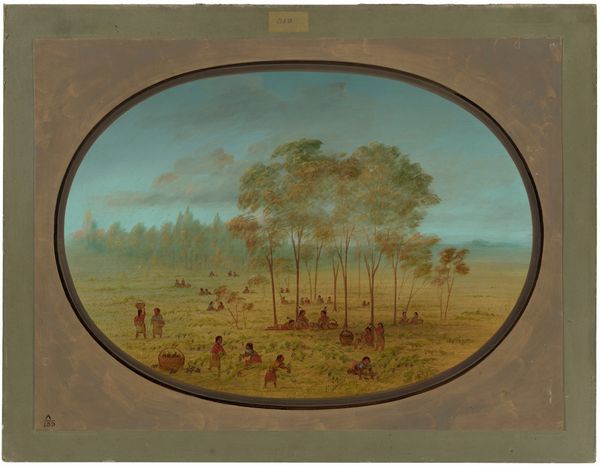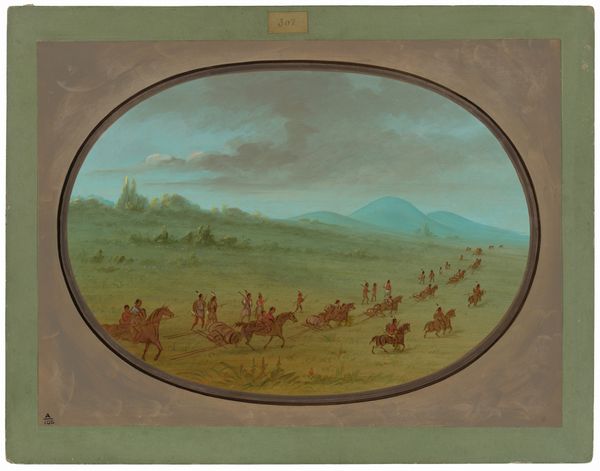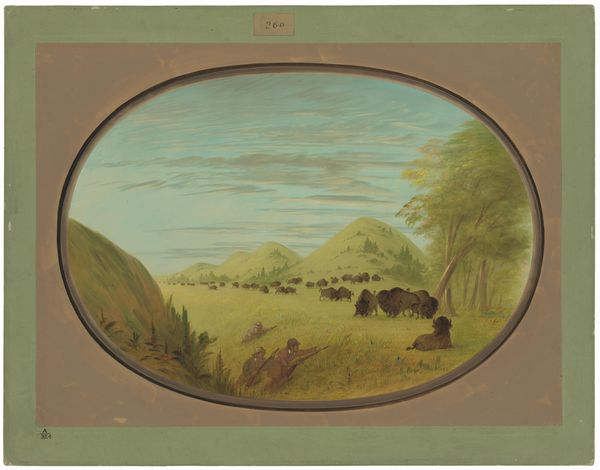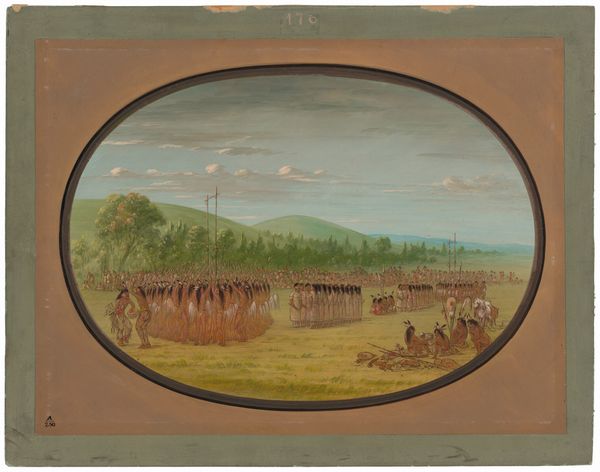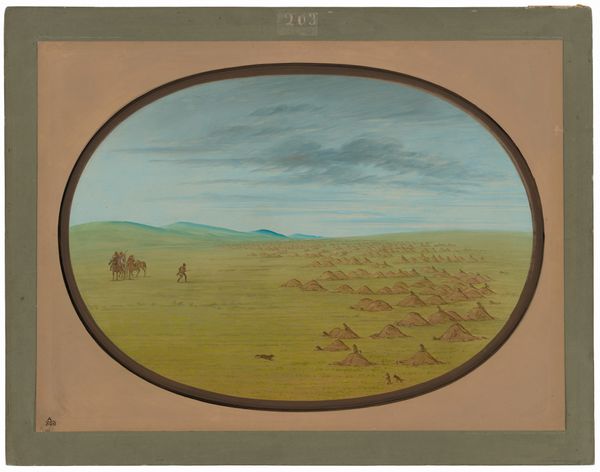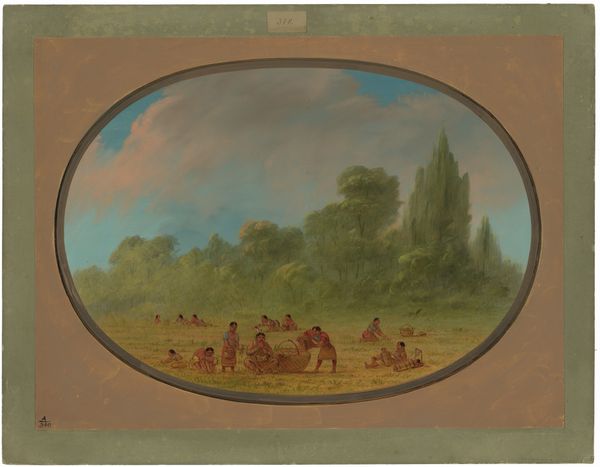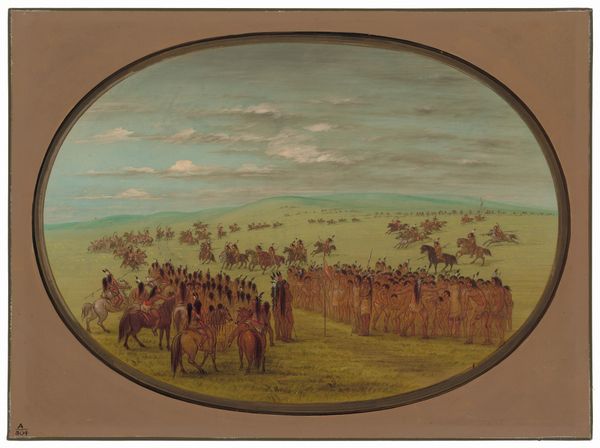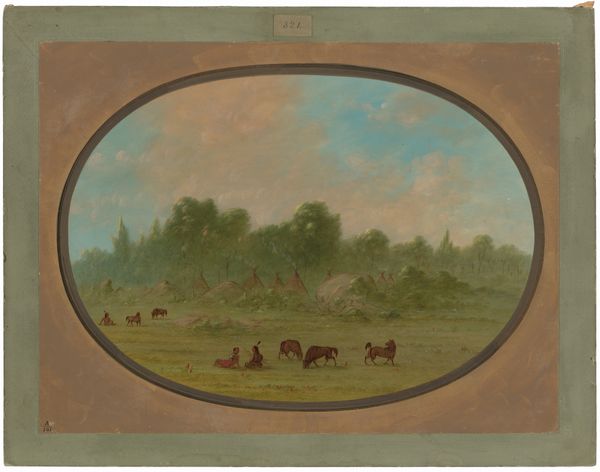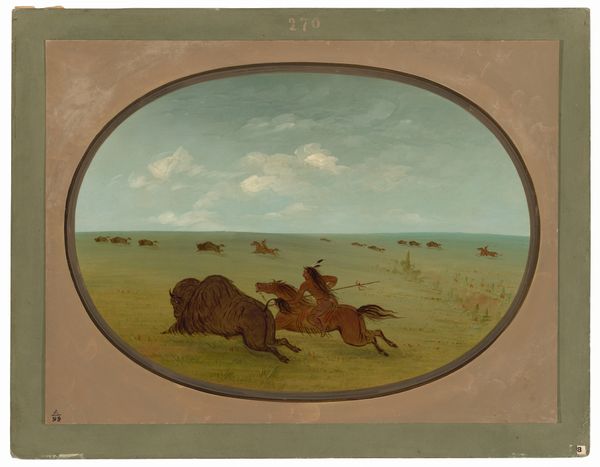
oil-paint
#
water colours
#
narrative-art
#
oil-paint
#
landscape
#
oil painting
#
watercolour illustration
#
watercolor
Dimensions: overall: 46.5 x 62.5 cm (18 5/16 x 24 5/8 in.)
Copyright: National Gallery of Art: CC0 1.0
Curator: At first glance, it's a beautiful yet unsettling expanse of land filled with motion, a sea of figures merging into the horizon. It reminds me of something you'd see in a dream—or perhaps a recurring nightmare. Editor: We're looking at George Catlin’s "Camanchees Moving," a watercolor painting from between 1861 and 1869. Catlin dedicated much of his career to documenting Native American life. Curator: Documenting seems like such a dry word for something so alive. The perspective feels... distorted. Almost as if the figures nearest to us are meant to repel rather than invite, do you think it is his way of rendering what it would feel like to encounter this scene in reality? Editor: Symbolically, consider the circle enclosing the scene; this echoes the cyclical nature of life, of seasons. Perhaps the perspective warps because he tries to hold many events at once, which echoes native cosmology as well. It’s all there, compressed into a single moment. Look at the horses—they seem to possess the same spirit of restless motion as their riders. They represent strength, freedom, a vital link between humans and the natural world. Curator: True. It seems so much about an internal state externalized. He makes visible what feels hard to grasp – cultural loss, resistance, pride—all that ferocity. Editor: Watercolors tend to veil in lightness serious implications, but perhaps that contrast is Catlin's tool to remind us of beauty amid difficulty. Curator: It truly invites deeper reflection about perspectives. It’s not just about recording; it’s about bearing witness and perhaps... remembering. Editor: A complex vision of movement through the canvas, indeed, rendered in deceptively gentle strokes, isn't it?
Comments
No comments
Be the first to comment and join the conversation on the ultimate creative platform.
